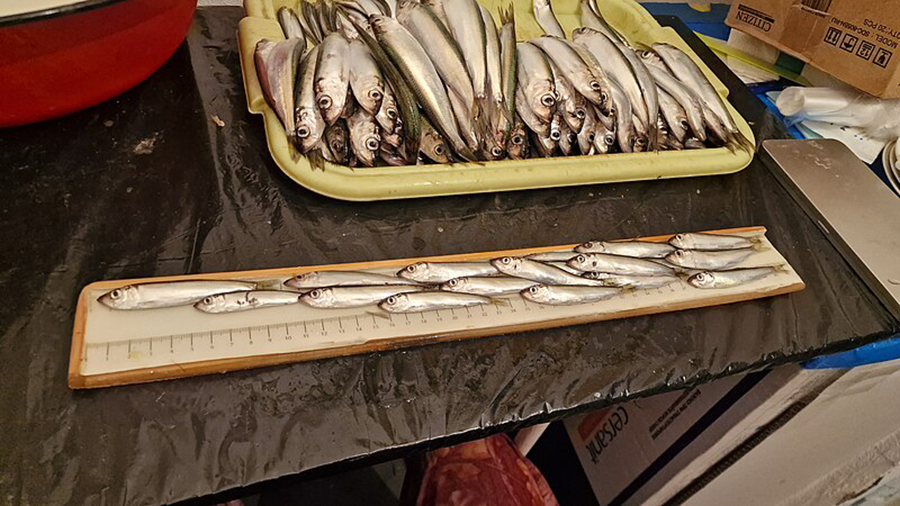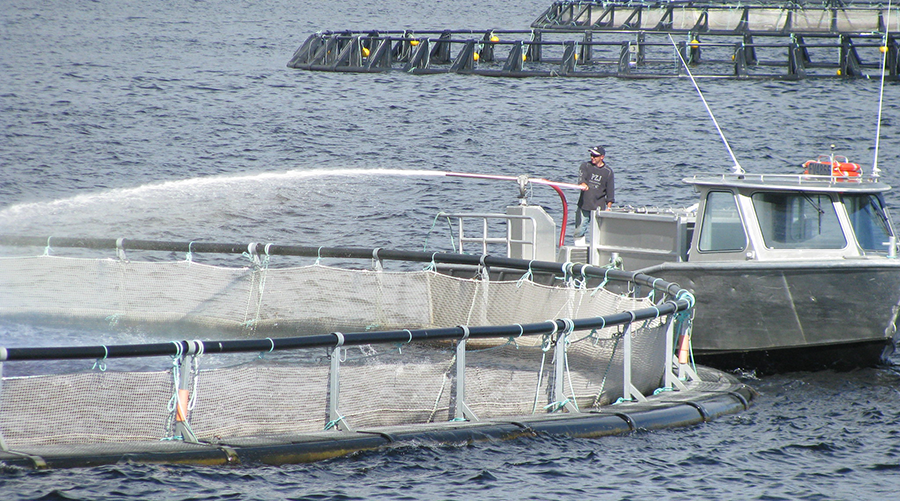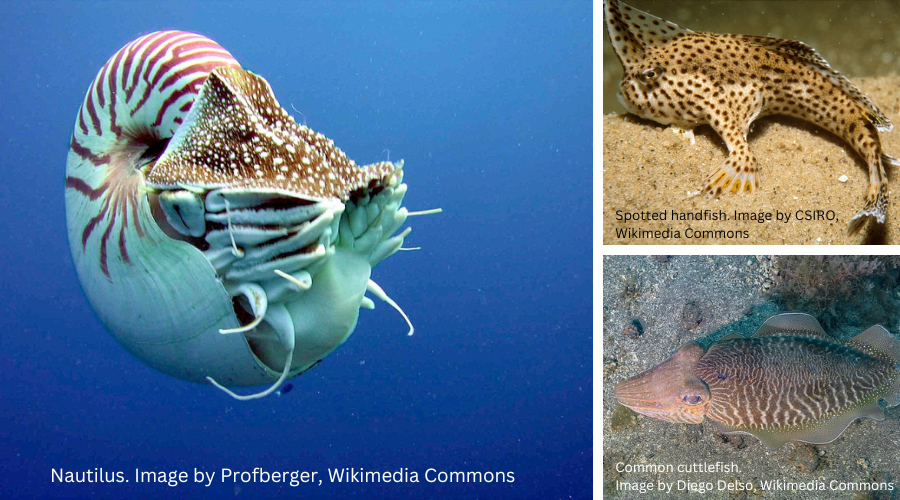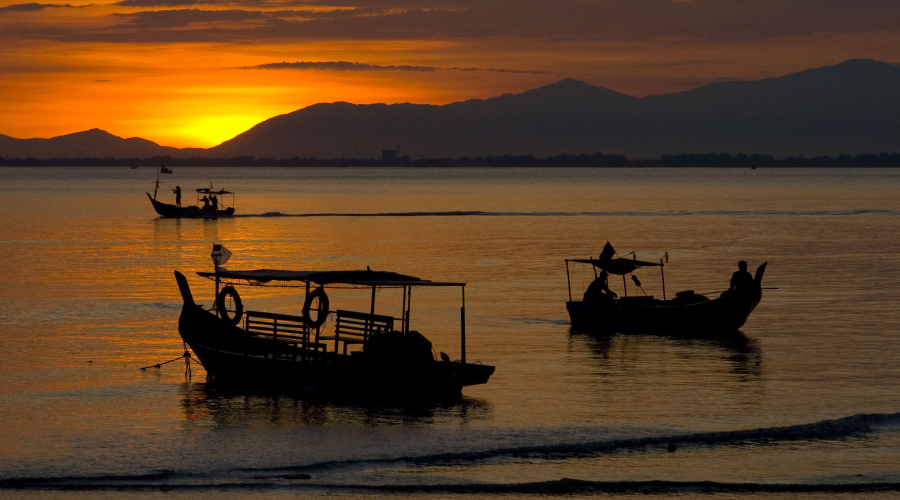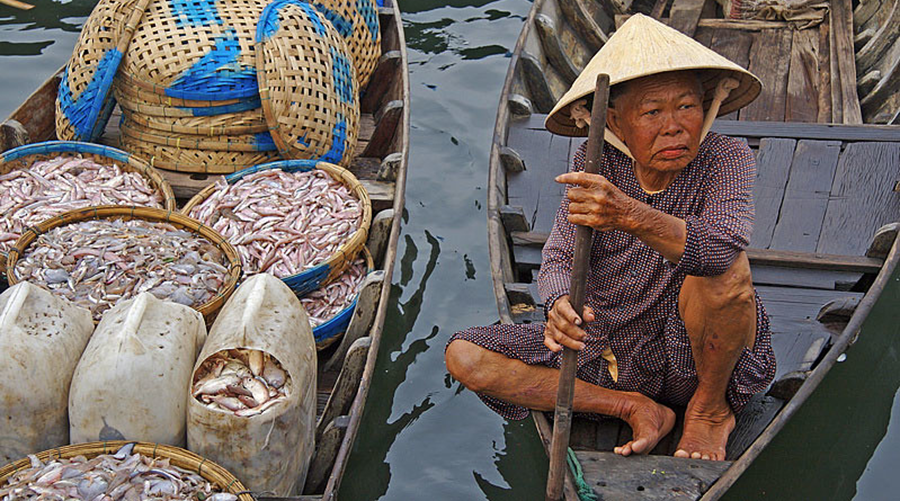
Hoi An fish market in Vietnam. Image by Jean-Marie Hullot, Flickr.
Fish populations and the humans that depend on them for food will continue to feel the brunt of warming waters from climate change.
A recent study by researchers at the Sea Around Us – Indian Ocean, based at the University of Western Australia, the Changing Ocean Research Unit at the University of British Columbia and the University of Miami, shows that even with strong climate mitigation efforts, maximum catch potential is expected to fall by 58–92 per cent in the Pacific Islands and 65–86 per cent in Southeast Asia by the mid to end of the 21st century. These losses will likely result in fisheries failing to meet key micronutrient requirements in these regions’ coastal populations.


